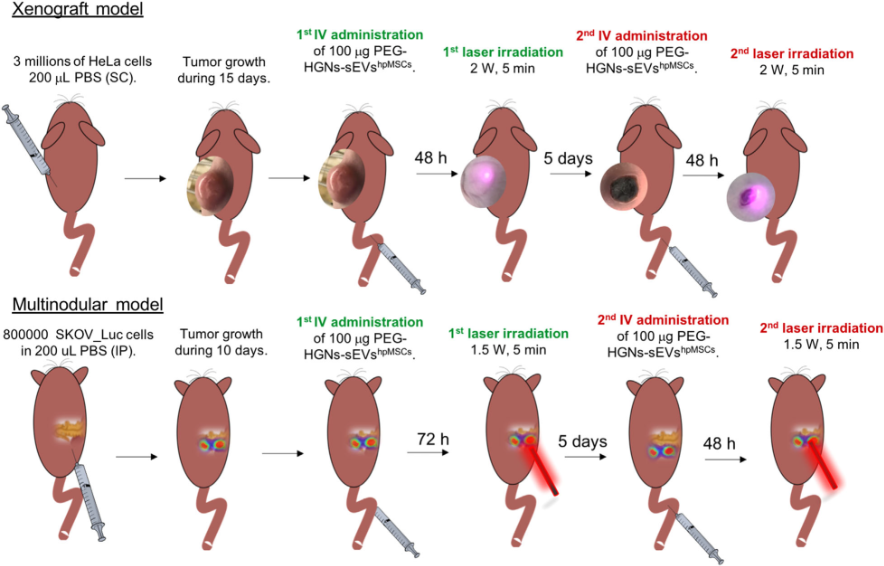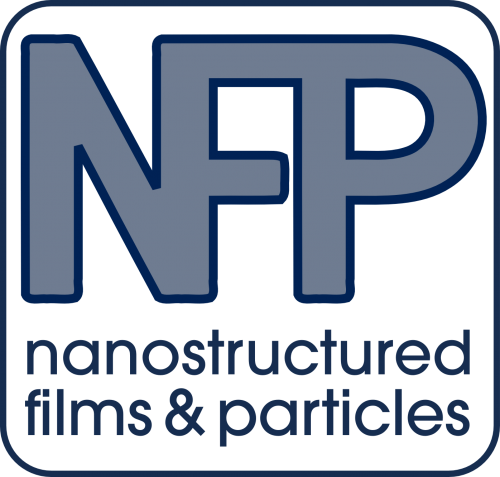
Transfer of photothermal nanoparticles using stem cell derived small extracellular vesicles for in vivo treatment of primary and multinodular tumours
- Post by: nfp
- 08/03/2022
- Comments off
The main current challenges in oncology are (1) avoiding systemic side effects in therapy, and (2) developing alternative treatment strategies for metastatic tumours.
Nanomedicine was assumed to provide answers to these issues, but delivering enough therapeutic nanoparticles (NPs) to tumours still remains a huge challenge in nanomaterials-based treatments. Extracellular vesicles (EVs) play a key role in cell communication processes and can be combined with nanomaterials to improve their targeting capabilities. In this work, we leverage the ability of EVs derived from stem cells to reach tumour areas successfully, being used as delivery vehicles for nanoparticles acting as hyperthermia agents. Once small extracellular vesicles (sEVs) loaded with NIR-sensitive hollow gold NPs reached primary subcutaneous solid tumours, they were irradiated with a NIR laser and almost complete tumour remission was obtained. More interestingly, those sEV vehicles were also able to reach multinodular areas similar to those on advanced metastatic phases, eradicating most tumour growth regions in multiple cancerous nodules located in the pancreas region.
Full article here.
NFP Research Area: Nanomedicina: NANOMATERIALS AS VECTORS FOR REMOTE HYPERTHERMIA
